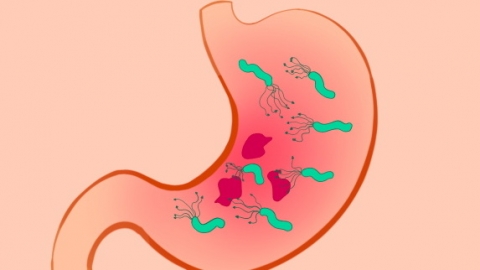How to treat Helicobacter pylori infection
Generally, the treatment of Helicobacter pylori mainly involves adjusting the diet, improving lifestyle habits, eradicating the bacteria through quadruple therapy, inhibiting gastric acid secretion, and protecting the gastric mucosa. Different approaches target various problems caused by the infection, working together to promote gastric health recovery. A detailed analysis is as follows:

1. Adjusting diet structure: During treatment, spicy, greasy, overly cold, or hot foods should be avoided, as these can irritate the gastric mucosa and worsen discomfort. A light and easily digestible diet is recommended in daily life, such as millet porridge, soft noodles, and steamed egg custard.
2. Improving lifestyle habits: Smoking and alcohol consumption can impair blood circulation in the gastric mucosa and reduce the effectiveness of medication; therefore, smoking cessation and limited alcohol intake are necessary. Additionally, maintaining a regular sleep schedule, avoiding late nights, and reducing mental stress can help maintain normal digestive function of the stomach.
3. Eradication with quadruple therapy: This is currently the mainstream eradication method, which involves the combined use of two antibiotics, a proton pump inhibitor, and a bismuth agent to inhibit and kill Helicobacter pylori. Commonly used drug combinations include omeprazole enteric-coated capsules, amoxicillin capsules, clarithromycin tablets, etc. These medications must be taken strictly according to medical instructions and for the full course of treatment.
4. Inhibiting gastric acid secretion: Helicobacter pylori can easily survive in an acidic environment. Using proton pump inhibitors or H₂-receptor antagonists to reduce gastric acid secretion can disrupt the bacteria's living environment. Commonly used medications include rabeprazole sodium enteric-coated tablets, pantoprazole sodium enteric-coated tablets, famotidine tablets, etc.
5. Protecting the gastric mucosa: Infection may damage the gastric mucosa. Mucosal protectants can form a protective layer on the mucosal surface, reducing irritation from bacteria. Commonly used medications include colloidal bismuth pectin capsules, hydrotalcite chewable tablets, sucralfate suspension, etc. These medications can help alleviate symptoms such as stomach pain and bloating after administration.
Regular breath tests or gastroscopy should be conducted during treatment to monitor the eradication of Helicobacter pylori. Maintaining a healthy diet and lifestyle long-term is essential to reduce the risk of reinfection and ensure long-term gastric health.






